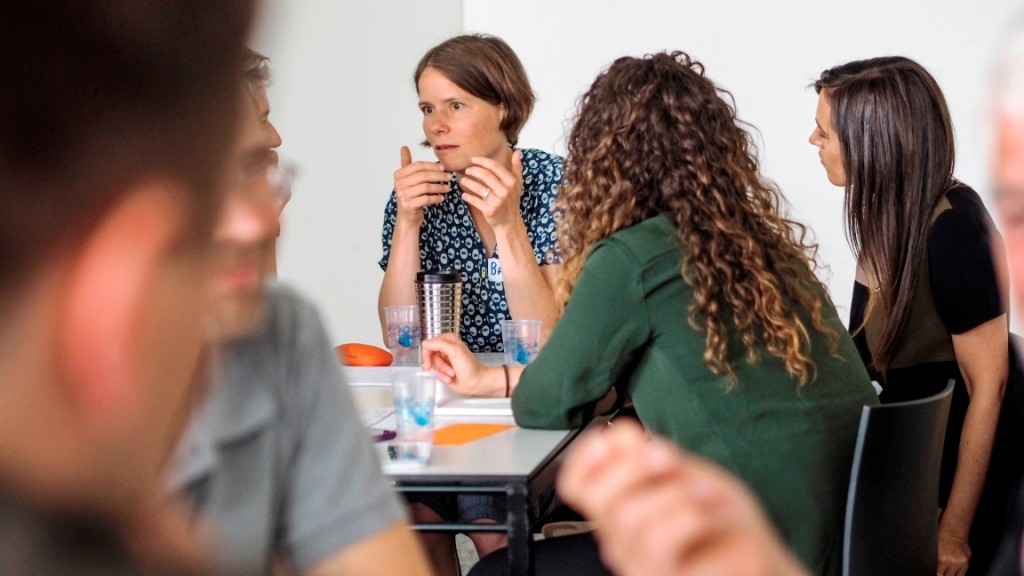Conversation is a form of interactive, spontaneous communication between two or more people.
Typically it occurs in spoken communication, as written exchanges are usually not referred to as conversations.
The development of conversational skills and etiquette is an important part of socialization.
Conversation is an immensely powerful and adaptable technology. It can be used purposefully to many different ends such as to:
- Improve understanding & sensemaking
- Build relationships
- Transform leadership
- Stimulate action
- Spur innovation
- Surface opportunities
- Explore possibilities
- Reveal hidden problems
- Solve problems
- Break down departmental silos
- Identify risks
- Share knowledge
- Improve decision-making
- Give people a voice
- Improve engagement
- Generate ideas
- Coaching and mentoring
The danger is that conversation is so common, so pervasive that its power and potential are overlooked. Even more damaging, it can be viewed as wasting time – un-commercial and unprofitable. But its uses in business are multiple.
- If you are about to start a new project – have a conversation with a project leader, who has run similar projects in the past.
- If you want to learn from a previous project – convene the team and encourage a conversation about the lessons generated.
- If you have just given a presentation – have a conversation with someone you know and trust to gain feedback.
- If you wish to share knowledge on a topic – bring people together to have a conversation about their experiences.
- If you wish to break down departmental silos – surely conversation is the only way?
And so on, it’s simple really. The uses of conversation are only constrained by our imagination.
Conversation | Joni MitchellPOST NAVIGATION
CHAPTER NAVIGATION
SEARCH
Blook SearchGoogle Web Search
If you enjoy my work and find it valuable, please consider giving me a little support. Your donation will help cover some of my website hosting expenses.
Make a donation



David,
Consider beginning this opening chapter with … a conversation.
Conversations are themselves a metaphor for abstracting from the concrete. It would be good to see this modelled from the outset.
Yours gratefully, Patrick
An interesting though Patrick. Difficult to capture the richness of an actual conversation in words. Do you think a short video conversation would work?
Video can really work, especially if set in context and dynamics explained by third party commentary. Contrasting versions of the same conversation can also work well. l have examples.
Best
Adrian
I’d love to hear about the examples Adrian.
Hi David, have you read Dee Hock’s “One from Many: VISA and the Rise of Chaordic Organization” it takes on the form of Dee Hock journey, with conversational pieces interspersed (Old Monkey Mind).
I would ask you to consider a question about storytelling, and which one captures most and when (all have pros and cons)?
The story you read in a book, in which you are forced to imagine the characters, the context, the subtleties etc. (and then the movie version always disappoints);
The audio version, where you are compelled to listen and absorb, and your imagination is still employed to engage with what is being said and fill in the blanks; or
The video, (and if the characters are boring you will quickly switch off and potentially only listen to anyway!) However if someone is compelling and engaging to watch, then this would always be the best option.
So in response to Patrick’s suggestion, should style dictate content delivery, or content dictate style of delivery?
Regards,
Peter
Thanks, Peter, this is food for thought :-)
I have just found an online PDF version of “One from Many: VISA and the Rise of Chaordic Organization” and realized I have seen it before but not actually read it. I’ve clipped it to Evernote to read later or even buy a printed version as it looks such a fascinating work.
A big thanks David
Empathy, understanding and inspiration have always been key outcomes I look for in conversation.
Conversations and story-telling have been central to development of our civilizations and could possibly be mentioned. I have also found that everything comes down to engagement of the individual and their understanding of the importance they play in shaping outcomes.
Is conversation about to be reframed to include interaction through social media (if used in the right manner, not as for self-aggrandizement by reality TV celebrities, etc.)?
Not sure if there are any elements you can take away from this set of comments.
Thanks, Stuart, I think real conversation is only ever face-to-face. Social media is a lesser form of communication in so many ways in my opinion. See https://conversational-leadership.net/real-conversations/
And yes engagement is KEY. If the convening of the conversation is handled well and the topic of importance to the participants then strong engagement should be an outcome.
Very useful comments thanks :-)